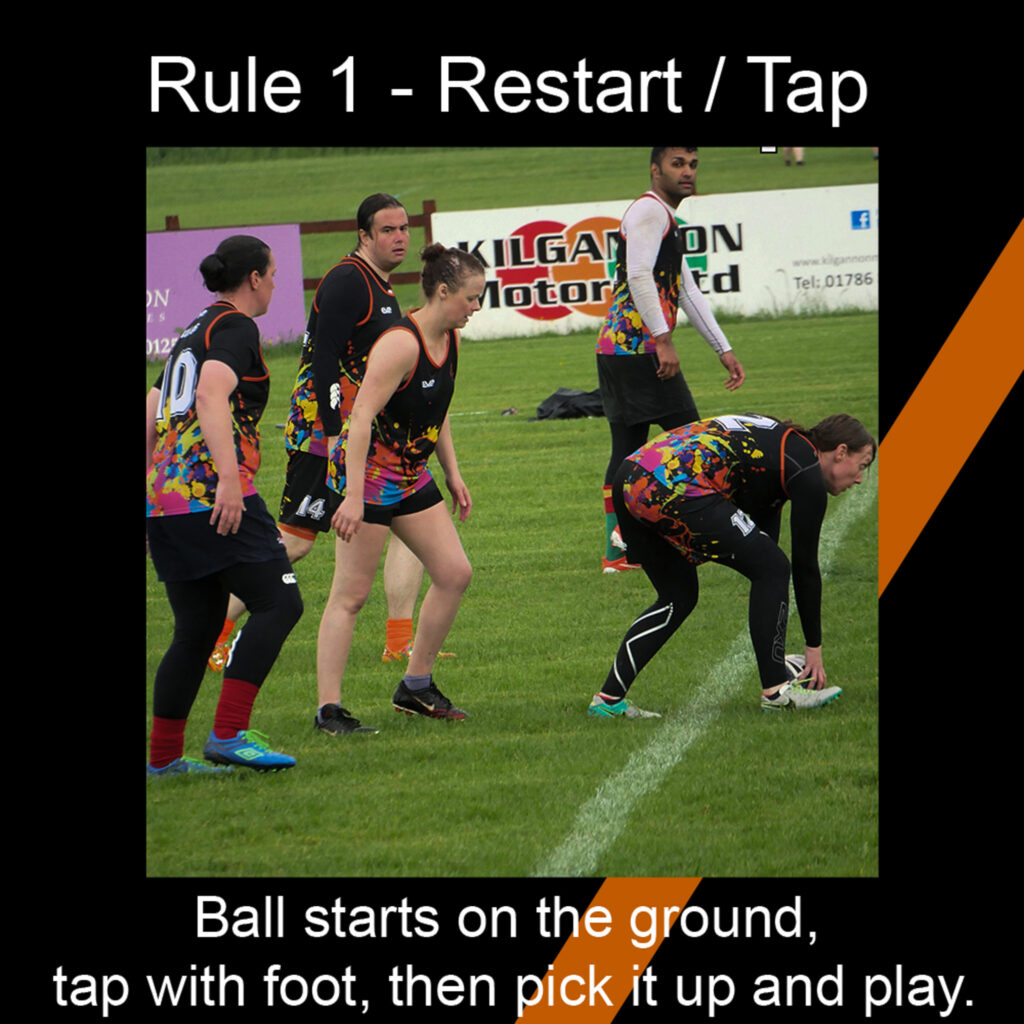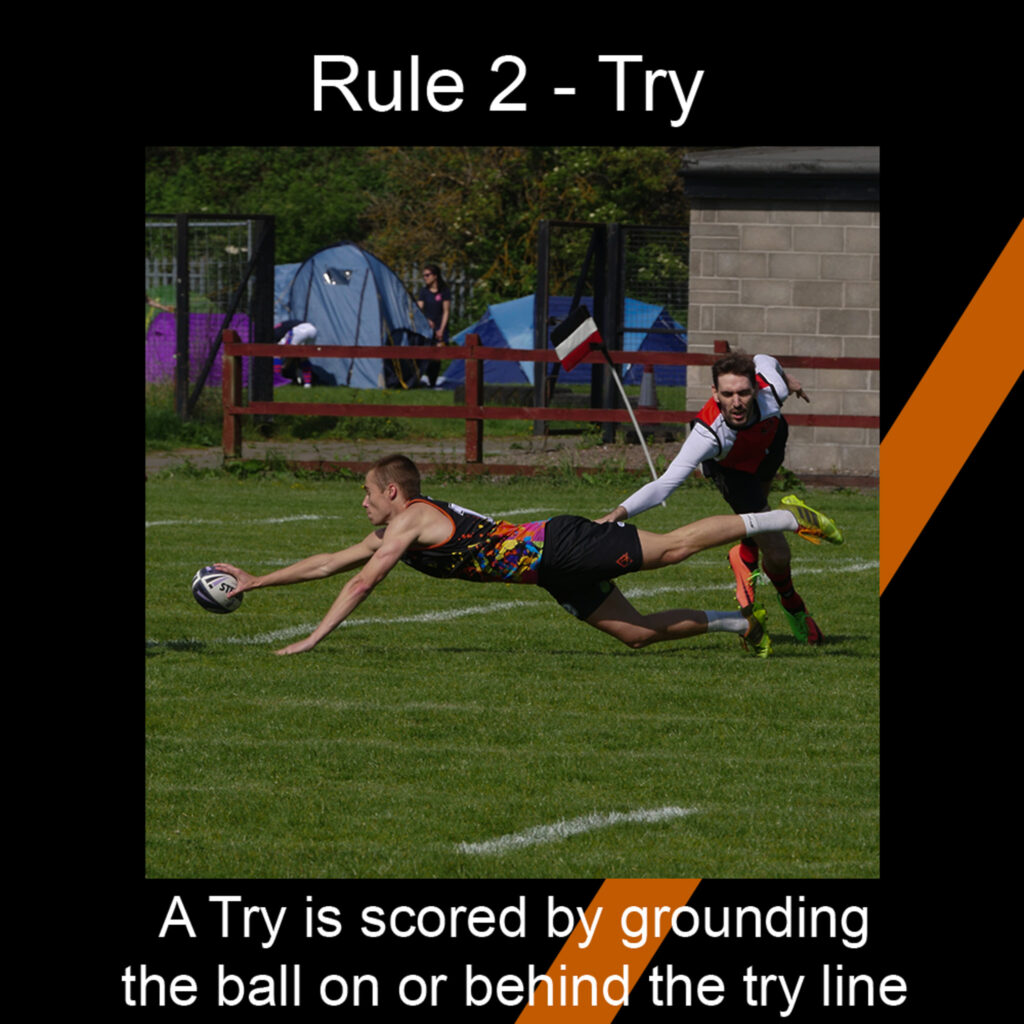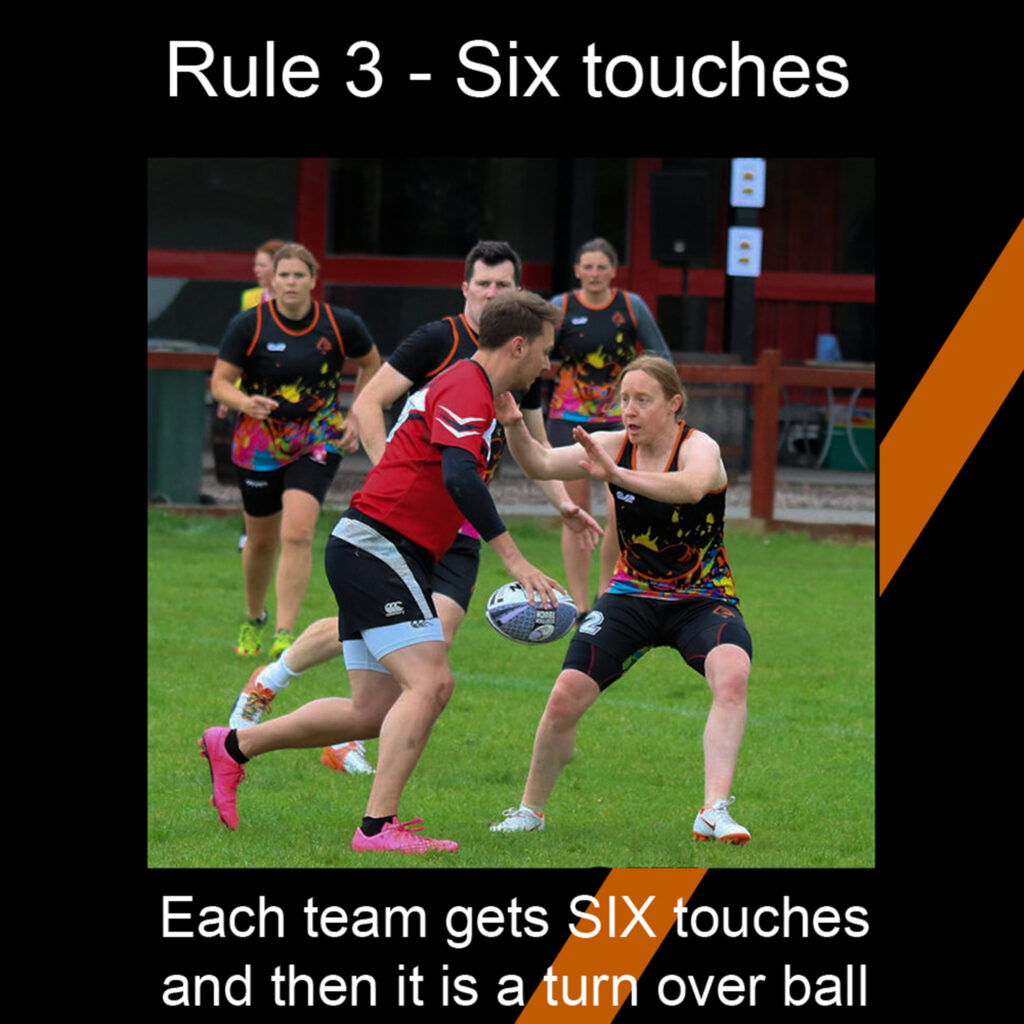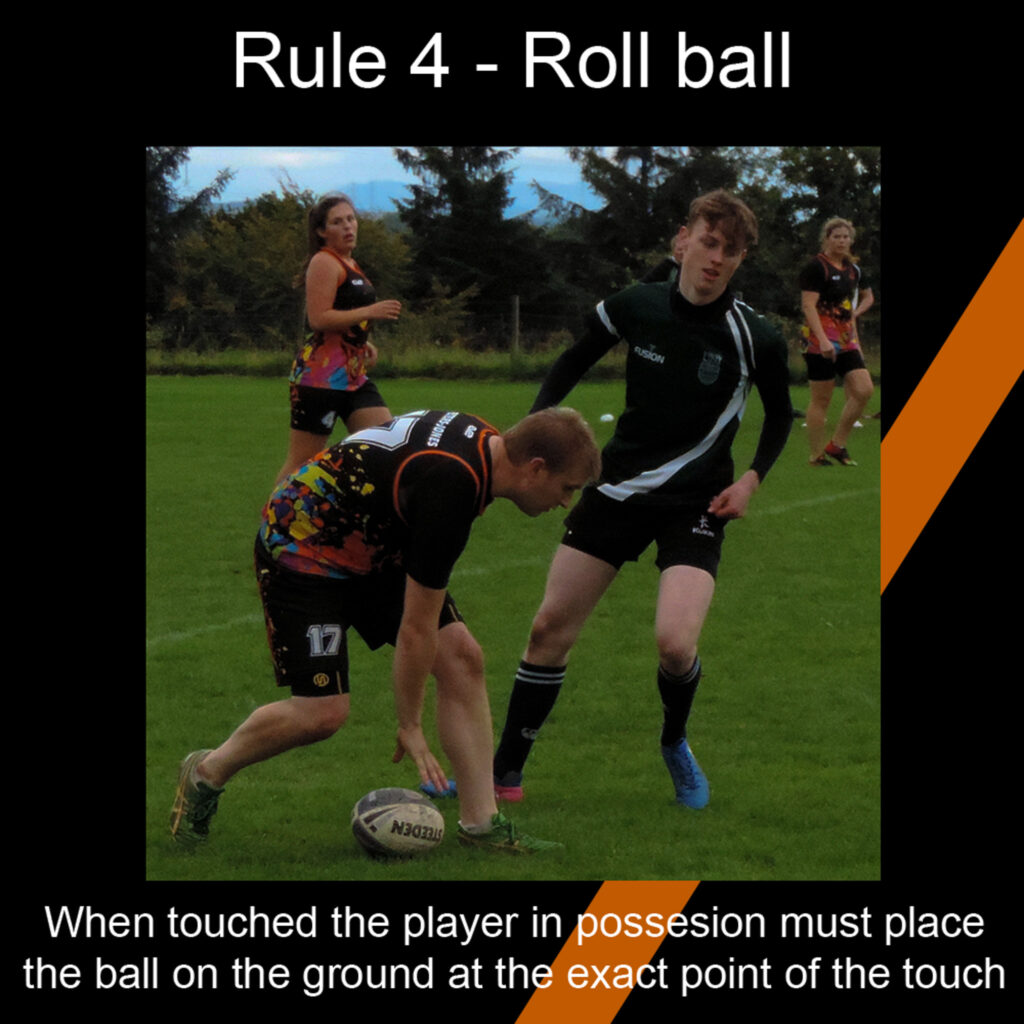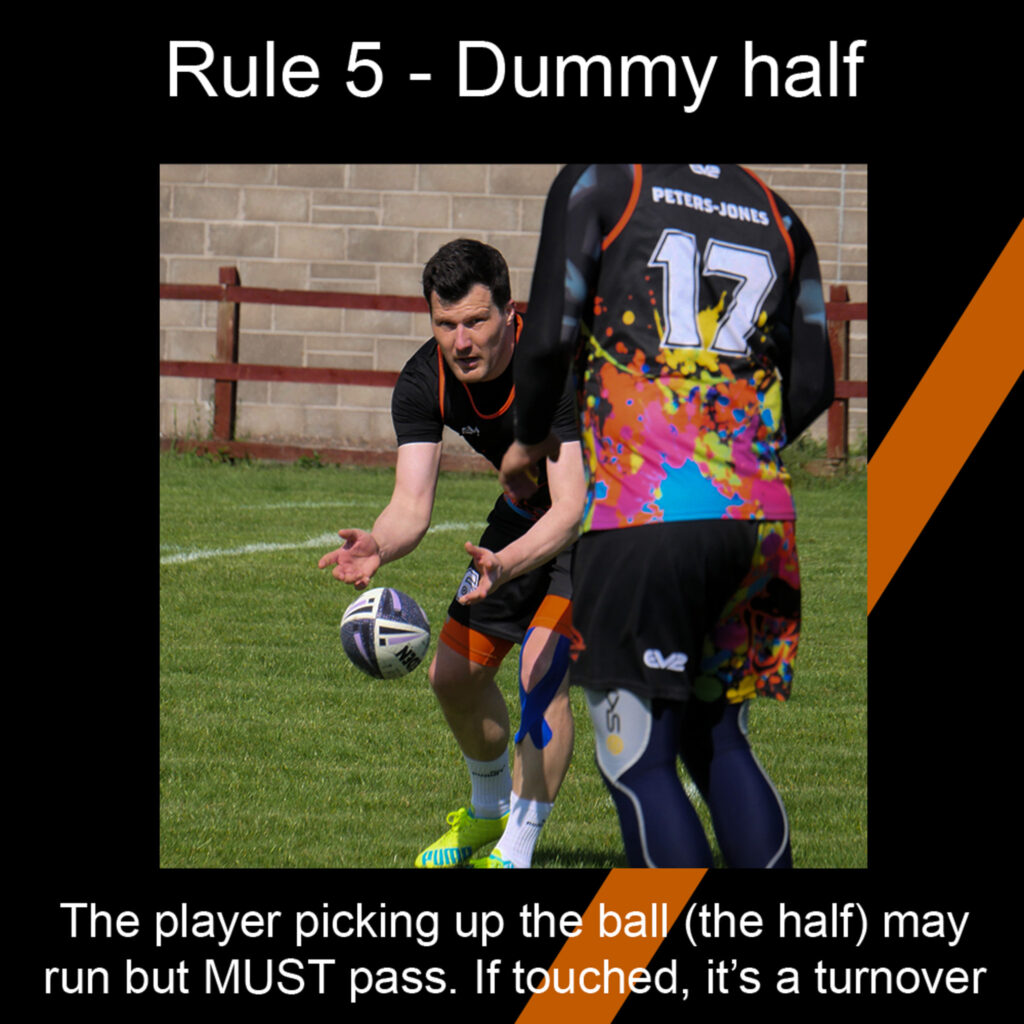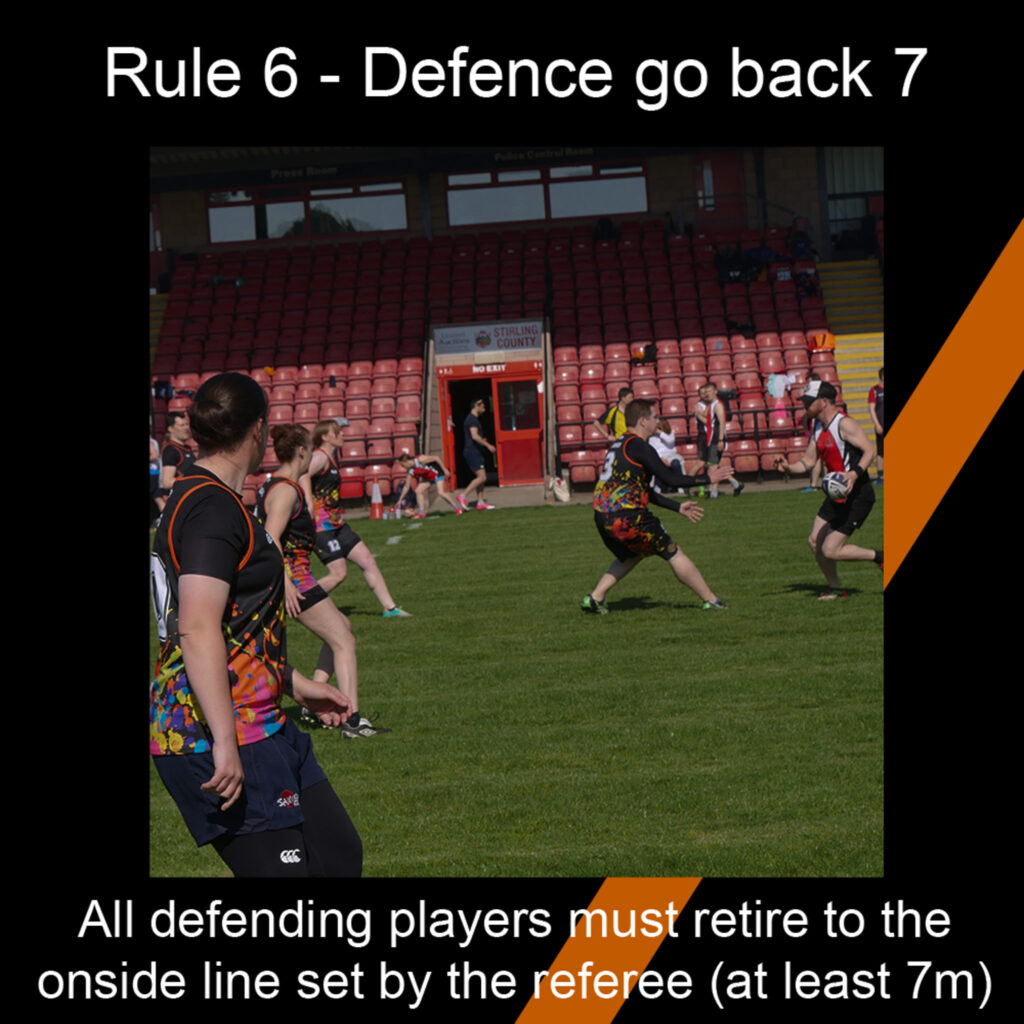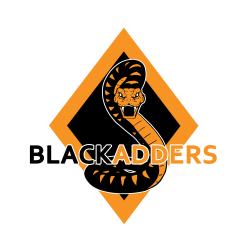
Abbreviated Playing Rules
- Game duration: Two 20-minute halves with a 5-minute half time. Local leagues can play to their own times, however, so confirm with the tournament organiser
- Play starts and restarts at the centre with a “tap”. This is performed by moving the ball on the ground with the foot, free from the hands, and then picking it up. Penalties are performed using the same procedure. On both a re-start and penalty the defending team must retreat at least 10 metres
- Six players are allowed on the field at any one time, with up to eight substitutes off the field. Reserves can be continuously substituted at any time from one side of the field
- A try is scored by grounding the ball on, or behind, the try-line. One point is awarded for a try
- A touch is legitimate and minimal contact between a player in possession and a defending player. A touch includes contact on the ball, hair or clothing and may be made by a defending player or by the player in possession. The referee is the sole judge of the touch and has the discretion to overrule a claim (so play to the whistle!). An attacking player may affect the touch by deliberately touching the opposition
- When touched, the player in possession must place the ball on the ground at the exact point of the touch. Play is re-started by stepping over the ball. It can be controlled with a hand or foot. This is known as a rollball. The ball may not roll more than a metre. A player may not perform a rollball unless touched
- The player picking up the ball (the half) may run, but if touched a changeover occurs. The half may not score and a changeover (rollball) will be awarded if this occurs
- After six touches with no score, possession changes. The attacking team begins play with a rollball
- During a roll ball, all defending players must retire to the onside line set by the referee, 7m back from the roll ball. The defending team cannot move forward until play restarts, nor interfere with play while retreating. A restart occurs the moment the ball is tapped (for a tap) or the half touches the ball (for a roll ball). Players may not delay the game by deliberately delaying a roll ball
- If the attacking player, when making a quick start, is touched by an offside defender, the referee may call for play to continue to see if an advantage can be gained or give a penalty tap
- When a roll ball is taken within 7 metres of the try line the defending players must retreat with both feet to behind their scoreline before they can make the touch. If a player is touched in the in-goal area before grounding the ball the touch counts and play is restarted on the 7-metre line
- If the ball is dropped or if a player crosses the sideline before being touched, a change of possession will occur
- A penalty is awarded for infringements including: forward pass, offside play, performing a roll ball over the mark, claiming a touch when none was made, using more than minimum force to make a touch, interfering with the roll ball and passing the ball once touched. When a penalty is awarded, the referee will give the mark where the tap must be taken and set the onside line for the defence (at least 10m). Play cannot re-start until the referee is ready
- If the defending team unsuccessfully intercepts the ball or it is intentionally knocked down, the attacking team restarts their possession (‘six again’) with a zero touch. If the interception is successful then the next touch of the ball carrier will be ‘zero touch’
- No obstruction, excessive contact, verbal abuse or foul play will be tolerated – the referee is sole judge. A penalty will be awarded in such cases and players can be removed from the field. Serious or continual foul play of any nature will result in the player being sent off without a replacement
Please note that these rules are necessarily simplified and should only be used at grass-roots level to introduce new players to the game. If you are looking to referee at tournaments or develop your skills as a ref, please make sure you read the full FIT rules in the link below.
